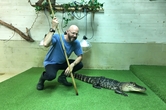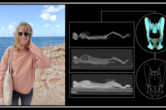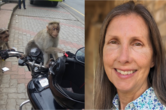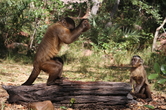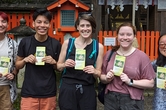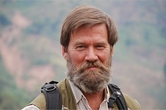Kick-off Symposium for the Leading Graduate Program in Primatology and Wildlife Science of Kyoto University
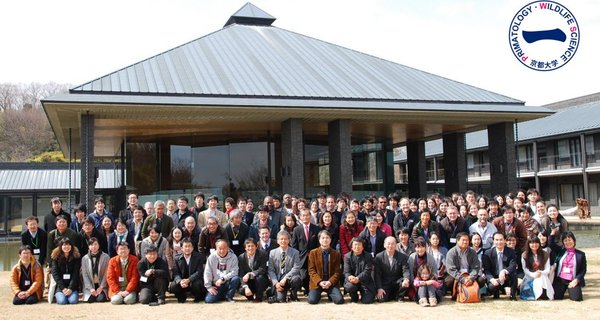
Kyoto University's new Leading Graduate Program in Primatology and Wildlife Science (PWS) got off to an auspicious start with an inaugural symposium held at the International Institute for Advanced Studies (IIAS) from 6th-9th March, 2014. A total of 147 participants joined the symposium, which was co-sponsored by Kyoto University's "Origin of the Human Mind" initiative.
An Auspicious Start
The 50 oral presentations included papers by PWS core staff members, overseas collaborators and other invited speakers. These were grouped into 11 sessions with the general themes of Ecology and Conservation (4 sessions), Mind (3 sessions), Behaviour and Mechanisms (2 sessions), Genomics (1 session) and Outreach (1 session). There were also more than 70 posters, a large proportion of which were given by current and prospective research students.
Oral and poster presentations included an eclectic mix of subject areas and also encompassed a variety of approaches. These ranged from general introductions of the presenter and their research interests, through descriptions of ecosystems and outreach projects, to standard research papers dealing with the results and interpretation of specific experiments or field observations. This provided a good opportunity for all participants to venture beyond the familiar areas of their own research and learn about what other scientists and educators in other fields are working on and thinking about.
There was also a special session on the last day in which the presenters of the three posters that were judged to be the best were given the opportunity to present their findings in as a spoken paper. The winners were from France (Ms. Cecile Sarabian, Master’s student at the Université de Strasbourg and intern student at Kyoto University’s Primate Research Institute), Gabon (Mr. Etienne-Francois Akomo Okoue, Master’s student at Kyoto University and researcher at the Institut de Recherche en Ecologie Tropicale in Gabon) and Japan (Dr. Ayaka Takimoto, postdoctoral fellow at the University of Tokyo). This session allowed the presenters to really showcase their work, and all did a great job of presenting their studies orally, especially given the short time they had for preparation. Well done!
In terms of general subject area, 63% of all presentations were on primates, of which almost half were on great apes or humans. About 33% of presentations focussed on wildlife other than primates and the remaining 4% were on ecosystems, conservation activities and outreach programmes. Studies in which wildlife conservation was a primary focus accounted for only 15% of all presentations.
This symposium will be held annually throughout the seven years of the Leading Graduate Program in PWS. Given the aims of the program, it is hoped that this period will see a marked increase in the number of contributions dealing with wildlife science, and especially wildlife conservation, whilst retaining the high profile of primate research, for which Kyoto University is renowned.
David Hill
For more information about the program, the symposium and the venue, follow these links:
